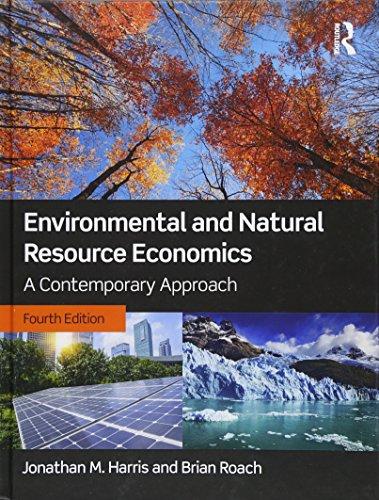Suppose that the fishery example discussed in the chapter was not a common property resource but a
Question:
Suppose that the fishery example discussed in the chapter was not a common property resource but a fishery in a lake owned by an individual or a single firm. The owner could choose to allow fishing and charge a fee for access to the lake. How would the economic logic differ from the common property resource case? Would there be a greater net social benefit? Who would receive this net social benefit?
Fantastic news! We've Found the answer you've been seeking!
Step by Step Answer:
Related Book For 

Environmental And Natural Resource Economics A Contemporary Approach
ISBN: 9781138659476
4th Edition
Authors: Jonathan M. Harris, Brian Roach
Question Posted:






